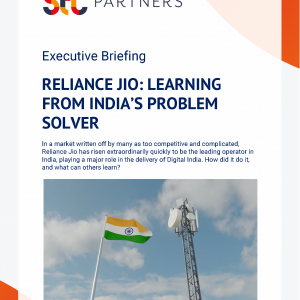Building a green network: Sustainability game changers
£1,000.00 excl VAT
Networks consume more than 75% of all the electricity a typical service provider uses in one year. We explore five game changing strategies that can be implemented today to help build greener networks.
Description
Format: PDF filePages: 19 pagesCharts: 7Author: Thomas Quinn, Tilly GilbertPublication Date: August 2022
Table of Contents
- Executive Summary
- Five sustainability gamechangers to build a greener network
- Introduction
- Carbon emissions: At the heart of the corporate strategy for SPs
- The single biggest contributor: Why the focus on green networks
- Re-evaluate the gold standard for network KPIs
- Impact on carbon emissions
- Evidence of adoption by service providers
- Develop best-in-class AI and automation capabilities
- Impact on carbon emissions
- Evidence of adoption by service providers
- Simplify the network to achieve emission benefits today
- Impact on carbon emissions
- Evidence of adoption by service providers
- Ensure workloads are running on green energy as much as possible
- Impact on carbon emissions
- Evidence of adoption by service providers
- Target a power usage effectiveness rating of 0.5 through innovative waste heat solutions
- Impact on carbon emissions
- Evidence of adoption by service providers
- Conclusion
Table of Figures
- Figure 1: More than 75% of Proximus’ electricity consumption last year came from their fixed and mobile network
- Figure 2: Tracking more sustainable metrics will require a combination of new and evolved KPIs Figure 3: AI is enabling Verizon to reduce energy in their network data centres
- Figure 4: China Telecom has achieved sustainability benefits from simplifying its fixed network
- Figure 5: Market-based emissions reporting ‘flatters’ achievements in reducing emissions from grid power – location-based emissions apply a tougher standard
- Figure 6: Solutions like heata could provide a model for SPs to think more innovatively about data centre efficiency
- Figure 7: Service providers should look to implement low-hanging opportunities while pushing the industry to help support them on longer term opportunities too

